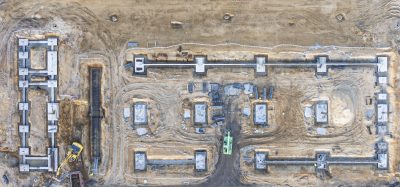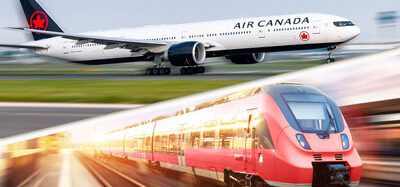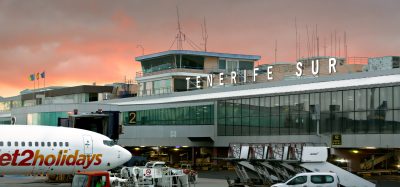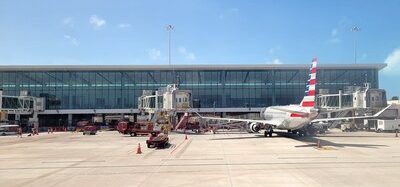Green Freeport to deliver first Scottish SAF plant
- Like
- Digg
- Del
- Tumblr
- VKontakte
- Buffer
- Love This
- Odnoklassniki
- Meneame
- Blogger
- Amazon
- Yahoo Mail
- Gmail
- AOL
- Newsvine
- HackerNews
- Evernote
- MySpace
- Mail.ru
- Viadeo
- Line
- Comments
- Yummly
- SMS
- Viber
- Telegram
- Subscribe
- Skype
- Facebook Messenger
- Kakao
- LiveJournal
- Yammer
- Edgar
- Fintel
- Mix
- Instapaper
- Copy Link
Posted: 19 August 2022 | International Airport Review | No comments yet
A new Green Freeport in the Northeast of Scotland will play a crucial role in decarbonising the aviation industry by delivering a sustainable aviation fuel facility.
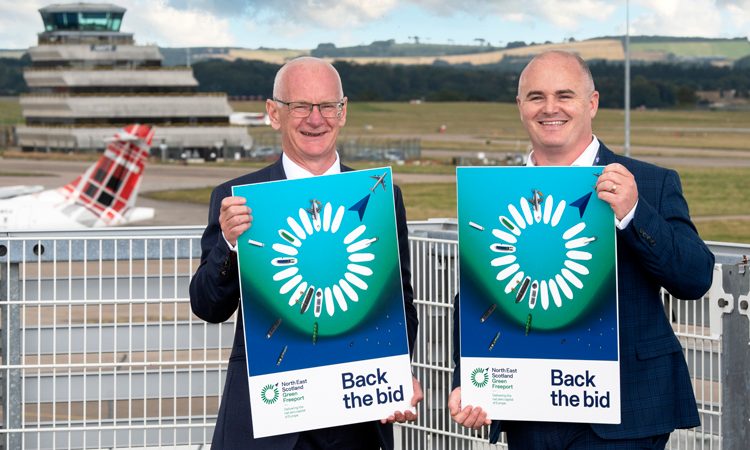

Credit: AGS
A Green Freeport in the North East of Scotland could play a significant role in decarbonising the aviation industry by delivering a sustainable aviation fuel (SAF) plant that would create up to 920 jobs and £133 million in GVA per year.
The creation of a SAF facility at St. Fergus is a key part of the North East Scotland Green Freeport bid, which has a wider focus on investing in sustainable fuels to support the UK’s Decarbonising Transport strategy.
Derived from sustainable feedstocks such as household and post recycling municipal waste, agricultural and forestry residues, SAF generates carbon savings of upwards of 70 per cent compared to fossil jet fuel.
A report commissioned by industry body, Sustainable Aviation, concluded a UK SAF industry could deliver £2.9 billion annually to the UK economy, create 20,200 clean growth jobs in SAF production and export services, with UK production saving 3.6 million tonnes of CO2 annually by 2038.
Driving a domestic SAF sector with the North East Scotland Green Freeport would put the UK at the forefront of world leading aviation climate solutions. It would create thousands of clean growth jobs and provide a significant UK export opportunity as aviation decarbonises globally.
Jon Matthews, Group Head of Capital and Planning at Aberdeen International Airport (ABZ) commented: “The SAF production facility at St. Fergus is a key part of the region’s bid for green freeport status. It was identified based on the availability of feedstock required to produce SAF and the enabling carbon capture usage and storage (CCUS) infrastructure.
“Securing green freeport status would not only unlock the potential of this SAF plant it would help retain and create jobs at St Fergus which is actively seeking a just transition of workers to clean growth jobs.”
Steve Murphy, Chief Commercial Officer at Storegga, the lead developer for the Acorn carbon capture and storage and hydrogen infrastructure projects proposed for St Fergus said: “Becoming a Green Freeport is an important element of the collective Scottish and UK effort to reach net zero, connecting Acorn’s CO2 capture and permanent geological storage to emitters in central Scotland, English Freeports such as Thames and Solent, as well as international customers. As each day passes, the climate crisis worsens. It is vital we push hard to get important carbon reduction developments like Acorn online as swiftly as possible.
“The North East Scotland Green Freeport will accelerate and amplify the Scottish Cluster, including CO2 import facilities at Peterhead Port and Europe’s first at-scale direct air capture plant which can support a new sustainable aviation fuel sector and help abate CO2 emissions from the transport sector.”
A North East Scotland Green Freeport is key to unlocking the SAF potential in the region.
It comes as more than 100 senior business leaders and cross section of politicians recently signed a statement in support of the North East Scotland Green Freeport bid which will create 32,000 high-quality jobs and boost GVA by £8.5 billion over the next decade.
The use of SAF does not require new technology for aircraft or the need for airports such as Aberdeen, to invest in new facilities. Almost 500,000 flights around the world have already flown on SAF.
Around 73 per cent of aviation emissions come from medium and long-haul flights, which will still need liquid fuel in 2050, meaning SAF is a key, long-term solution to the UK aviation industry’s jet zero commitment.
Related topics
Airside operations, Emissions, Sustainability, Sustainable Aviation Fuel (SAF), Sustainable development, Terminal operations, Workforce




